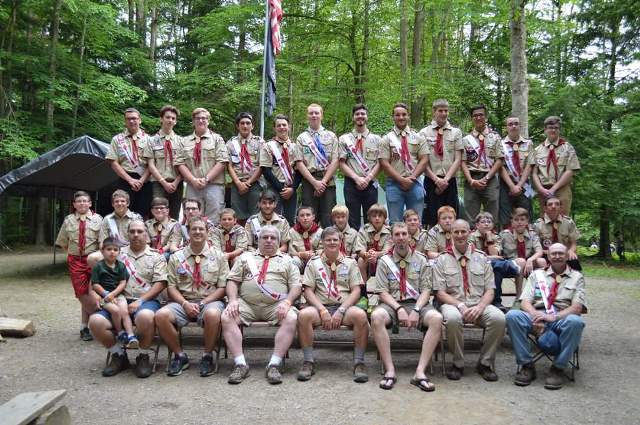As many as 547 former students of the Catholic Regensburger Domspatzen choir school in Germany were abused physically, and in some cases sexually, over a period of 70 years, an independent report has alleged.
The 440-page report, commissioned by the Regensburg diocese, found a culture of violence across the school, from pre-school classes, for children aged from 8 to 11, to boarding houses for older children, allegedly committed from 1945 until the report was commissioned in 2015.
“Pre-school victims of the Regensburg Domspatzen in (the towns of) Etterzhausen and Pielenhofen described the institution as a prison, hell and a concentration camp,” the report’s co-author lawyer Ulrich Weber said at a press conference Tuesday.
“Many of them called the time there as the worst of their lives, marked by violence, fear and helplessness.”
Of 547 students, 500 said they had been the victims of physical violence, such as beatings, while another 67 said they had been the victims of sexual abuse. Some had experienced both.
“Reasons (for physical violence) were misconduct or poor performance of the students, but also arbitrariness by the educators,” the report said.
Forty-nine people, including school staff, are alleged to have taken part in the abuse, nine of whom are accused of sexually interfering with the children. It is not known if a criminal investigation will begin.
Reports of abuse at the German school first emerged in 2010.
Former musical director at the school, Georg Ratzinger, the brother of former Pope Benedict, apologized to the victims in a newspaper interview at the time, saying he wasn’t aware of any sexual abuse.
However, Ratzinger admitted he, too, slapped children as discipline. “I did have a very bad conscience doing it, though,” he said in the interview.
‘Musical bests’
The Domspatzen, which literally means “cathedral sparrows” in German, is a centuries-old Catholic boys choir, based at St Peter’s Cathedral in Regensburg, which has performed all over the world.
“The whole educational system was based on musical bests and thus the success of the choir. Victims reports were not taken seriously,” the report’s authors wrote.
The German school has yet to release a statement on the report’s findings, but the report said efforts have already been made to remedy “former organizational weakness.”
“The transparency and willingness to cooperate between the leaders of the Domspatzen and the bishopric in relation to this investigation is evaluated very positively,” the report said.
Many of the offenses occurred in the 1960s and 1970s, with 98 victims from 1960-69 and 168 victims from 1970-79, the report said.
It suggests the majority of the abuse took place in the pre-school, or Vorschule, which moved to Etterzhausen in the late 1940s, then to nearby Pielenhofen from 1981 to 2013. A boarding school in Regensburg has catered for students aged 11 to 18 since 1952.
Many victims described how moving from Etterzhausen or Pielenhofen to Regensburg was a big relief. “After Etterzhausen Regensburg seemed almost like paradise,” said one victim. “In Regensburg there was somehow the feeling that we’d got out of the ghetto,” wrote another.
“In all three areas of the Vorschule — school, choir/music education and boarding school — violence was used daily,” said the report. “As well as physical violence, forms of psychological and social violence were constantly present.”
Diocese: ‘We have learned a lot’
Regensburg diocese did not immediately respond to CNN’s request for comment, but Michael Fuchs, the Vicar General of Regensburg diocese since 2005, told a news conference Tuesday: “We all made mistakes and have learned a lot. We see today that we could have done things better and sooner.”
Fuchs said he hoped that the abuse victims would be able to accept the diocese’s apology.
“Reading the reports and the comments of the victims about what happened back then and having numerous conversations, we know how [the victims] are suffering to this day. It is something that weighs heavily and something that is very upsetting. All we can do is to apologize in the name of the perpetrators.”
Fuchs also told reporters that Ratzinger had said he failed to understand the scale of the abuses.
“He is and was a passionate musician, priest and educator and he’s an emotional person, who also slapped students, especially in the beginning. He also stated that in an interview and regrets it,” Fuchs said.
“He said multiple times that he wasn’t aware of sexual abuse, except for a case in 1958. He said he wrongly assessed the scale of these abuses that occurred in pre-school. He received hints over and over again but he didn’t pay enough attention to them. He apologized to the victims in an interview and I can’t see that he changed his view on this.”
‘Important step forward’
Father Hans Zollner, a Jesuit priest from Regensburg who is a member of Pope Francis’ commission to protect children, set up in 2014 to help combat clerical sex abuse, told Vatican Radio that the independent report was an “important step forward.”
The investigation showed that Bishop Rudolf Voderholzer of Regensburg “has taken seriously all the allegations, that he did not shy away from all that would ensue,” Zollner said, and his actions “will bring at least the chance of some justice for the abused.”
Allegations of historic child abuse in Catholic institutions have repeatedly emerged across the Western world in recent decades.
In early 2017, an Australian report estimated about 7% of Australian priests had been accused of abusing more than 4,000 children in Catholic churches and schools between 1950 and 2015.



